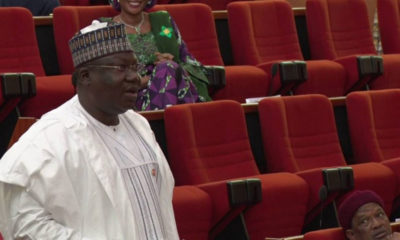Crude oil is up nearly 1% today across both major benchmarks, following a five-day losing streak.
Oil’s gains come after the People’s Bank of China cut interest rates more than expected as part of a series of economic stimulus measures that should support demand prospects for crude.
This comes amid growing signs of further escalation in the Middle East and the lack of a resolution in the horizon, which could keep the door open for a return of the geopolitical risk premium to crude prices.
The PBOC’s cut its Loan Prime Rate for one and five by 25 basis points to 3.1% and 3.6%, respectively. The anticipated move follows a series of previous measures aimed at supporting borrowers, particularly in the struggling housing market.
Despite the market’s welcome of the move, it has been met with skepticism, along with other previous monetary measures, about the effectiveness in supporting the economy. What the central bank is doing alone will not be enough, as demand for credit is still weak in the first place, according to the Wall Street Journal, citing Capital Economics. Significantly restoring economic growth requires large fiscal support, not just monetary support.
As such, I believe that oil’s gains, supported by economic factors from China, may be fragile and subject to rapid reversal.
This move also comes after the slowdown in GDP growth during the last quarter, as well as the slowdown in consumer price inflation and the contraction of producer prices faster than expected, in addition to the continued contraction in house prices, indicating continued weak demand.
In the Middle East, the prospect of regional war looms ever larger, with no signs of de-escalation from Israel, leaving the door wide open for further conflict.
Even after talk of hope for a truce following the killing of Hamas leader Yahya Sinwar, there are no indications of imminent ceasefire talks, and the escalation has actually worsened over the weekend, according to the New York Times.
This optimism emerged after the White House called for an end to the war, but I believe the U.S. administration’s repeated appeals for a truce are not serious.
In Lebanon, Israel has set out its demands for the United States to stop the war there, according to a number of US and Israeli officials who spoke to Axios. These demands include allowing Israel to carry out operations inside southern Lebanon to prevent Hezbollah from reconstituting its forces, as well as the freedom of Israeli flights in Lebanese airspace.
However, these demands will likely be rejected by the Lebanese side and the international community, as they violate Lebanese sovereignty, according to the site. Therefore, a settlement of the ongoing conflict there does not seem imminent with this very high ceiling of Israeli demands.
These demands are similar to those regarding the cessation of the war in Gaza, which has witnessed an escalation of military operations, especially in the northern part of the Strip, which comes after increasing reports of the intention to empty the north of its population, which contradicts the efforts to resolve the conflict.
In the region as well, markets are anticipating an Israeli attack on Iran in response to the unprecedented missile attack. Republican Representative Lindsey Graham said in an interview that this attack will be soon and strong.
Oil market has adjusted its pricing for concerns about the safety of regional oil supplies following a report from The Washington Post last week, indicating that Israel will refrain from targeting Iranian oil facilities. This decision aligns with the U.S. administration’s demands, given the potential impact of such an attack on rising oil prices coinciding with the start of the presidential race.
However, I believe that the Israeli attack will be met with an Iranian counter-response, which leaves the door open to targeting oil interests in the region in the next rounds of escalation that will come after the end of the elections, which may reignite rapid spikes in crude price in the coming weeks. While this supply disruption could push crude prices to $80 and even $120 per barrel, according to Citi Research’s estimate published last week.
By Samer Hasn, Senior Market Analyst at XS

 Naira4 weeks ago
Naira4 weeks ago
 News3 weeks ago
News3 weeks ago
 Education4 weeks ago
Education4 weeks ago
 Social Media4 weeks ago
Social Media4 weeks ago
 Technology4 weeks ago
Technology4 weeks ago
 Dividends4 weeks ago
Dividends4 weeks ago
 Investment4 weeks ago
Investment4 weeks ago
 Economy4 weeks ago
Economy4 weeks ago





















